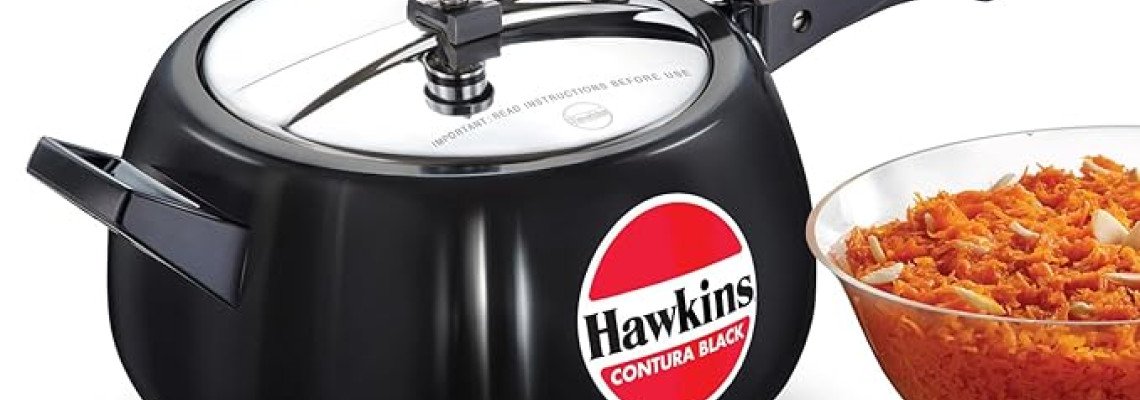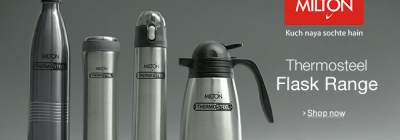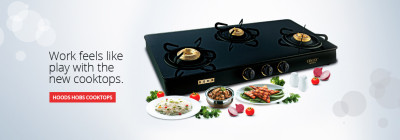
When it comes to selecting the right pressure cooker for your kitchen, durability and longevity are crucial factors. While traditional pressure cookers made from stainless steel or aluminum are common choices, hard anodised pressure cookers stand out for their long-lasting performance. In this blog, we will dive deep into the top three reasons why hard anodised pressure cookers outperform their traditional counterparts in terms of durability and lifespan.
Hard Anodising Process: Enhanced Durability
One of the primary reasons hard anodised pressure cookers last longer is the special process used to create them. The term "anodising" refers to an electrochemical process that hardens the aluminum surface, making it stronger and more resistant to wear and tear.
During the anodising process, aluminum is submerged in an acidic solution, and an electric current is passed through it. This leads to a controlled oxidation of the surface, creating a thick, durable, and non-reactive layer of aluminum oxide. This layer is not simply applied to the surface like paint; it is integrated into the material, making it highly resistant to chipping, peeling, and cracking.
Here are some key benefits of the hard anodised surface:
- Scratch Resistance: Unlike traditional aluminum or stainless steel cookers, hard anodised pressure cookers are highly scratch-resistant, allowing them to maintain their appearance and functionality over time.
- Corrosion Resistance: The anodised layer protects the underlying aluminum from corrosion, even when exposed to acidic or salty foods, which can easily damage traditional cookers.
- Non-Toxic Surface: Unlike non-stick coatings, which can wear out and release harmful chemicals, hard anodised cookers have a non-toxic, non-reactive surface that will not degrade or leach into your food.
This combination of scratch resistance, corrosion resistance, and non-toxic properties ensures that your hard anodised pressure cooker will serve you well for years, if not decades.
Superior Heat Distribution and Energy Efficiency
Another reason why hard anodised pressure cookers have a longer lifespan is their superior heat distribution. The process of hard anodising improves the heat conductivity of the aluminum, ensuring even heat distribution across the entire surface of the cooker. This not only allows your food to cook evenly but also reduces cooking time and energy usage.
Why does this matter for longevity?
- Faster Cooking, Less Strain on the Cooker: Traditional pressure cookers, especially those made from stainless steel, may take longer to heat up, putting more strain on the cooker’s internal mechanisms over time. The faster heating in hard anodised cookers means less wear and tear on the cooker itself, contributing to a longer lifespan.
- Consistent Cooking Results: Hard anodised cookers ensure consistent cooking results, which reduces the likelihood of the cooker being used under extreme conditions that could lead to premature damage.
Additionally, the energy efficiency of hard anodised pressure cookers is another reason they outlast traditional cookers. The faster cooking time means you’re using less energy, which translates to less frequent use of high heat settings that can degrade pressure cookers over time.
Ultimately, the better heat distribution and energy efficiency help preserve the pressure cooker’s internal mechanisms, including the gaskets, safety valves, and pressure regulators, all of which contribute to the appliance’s longevity.
Longevity with Low Maintenance
Hard anodised pressure cookers are easier to maintain than their traditional counterparts, which plays a significant role in their longevity. Many traditional cookers require regular polishing or deep cleaning to maintain their appearance and functionality. Hard anodised cookers, on the other hand, are extremely low-maintenance.
Here’s why low maintenance leads to a longer lifespan:
- Non-Stick Properties Without the Chemicals: The anodised surface naturally resists sticking, meaning you won’t have to scrape or scrub the cooker after each use. This prevents scratches or other surface damage that could shorten the lifespan of traditional aluminum or steel cookers.
- Easier Cleaning: Hard anodised cookers are easier to clean than traditional stainless steel cookers, which can become stained or discolored over time. The anodised surface does not react with foods, so it stays looking new even after years of use. A simple wash with mild soap and water is usually sufficient to keep it in top shape.
- No Need for Replacement Parts as Often: Because hard anodised cookers resist corrosion and damage better than traditional cookers, you’ll need to replace parts like gaskets or safety valves less frequently. This reduces the long-term cost of ownership and ensures the cooker continues to function well for years.
This low-maintenance aspect, combined with the inherent durability of the anodised material, ensures that your pressure cooker can withstand years of daily cooking without losing its integrity or functionality.
Summary: A Smart, Long-Term Investment
Hard anodised pressure cookers offer a unique blend of durability, performance, and low-maintenance design. The anodising process makes them stronger, more resistant to wear and tear, and better equipped to handle daily use than traditional pressure cookers. When you invest in a hard anodised pressure cooker, you’re not only getting a reliable kitchen tool but also one that’s built to last, providing excellent value for your money in the long run.
If you're in the market for a new pressure cooker and want something that will serve you well for years to come, a hard anodised model is a smart, long-term investment.
While hard anodised pressure cookers offer excellent durability, choosing the right induction top pressure cooker ensures compatibility with modern kitchens. Discover the best options here for a seamless cooking experience.





Leave a Comment